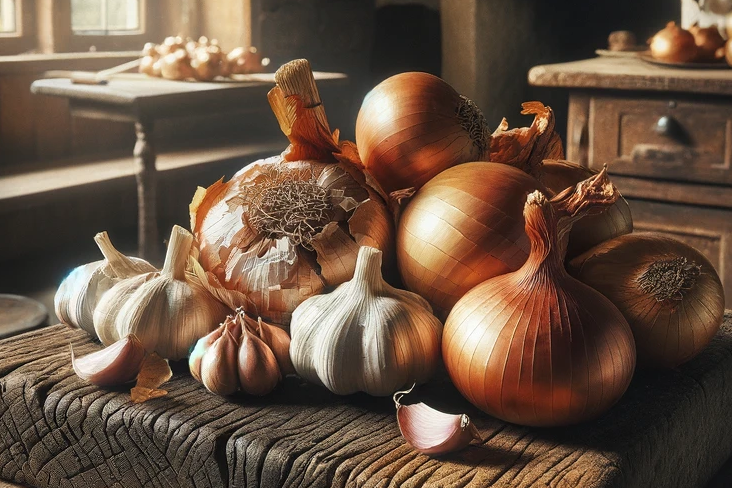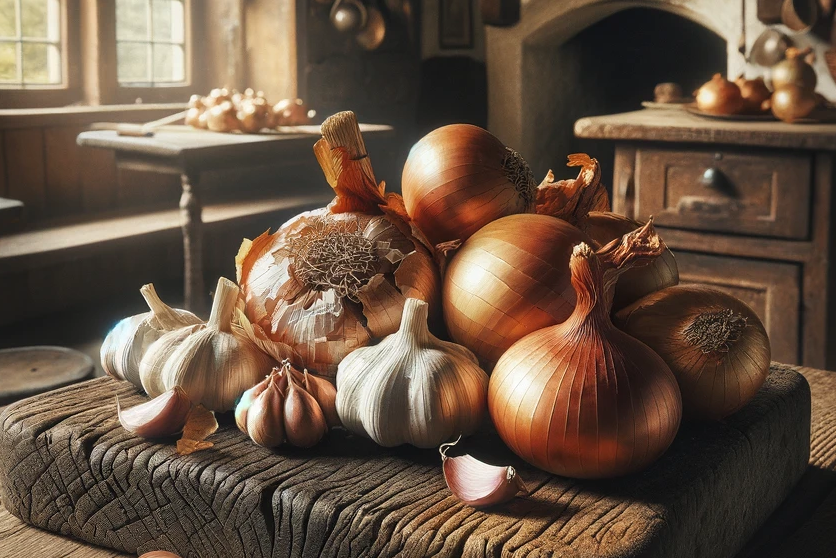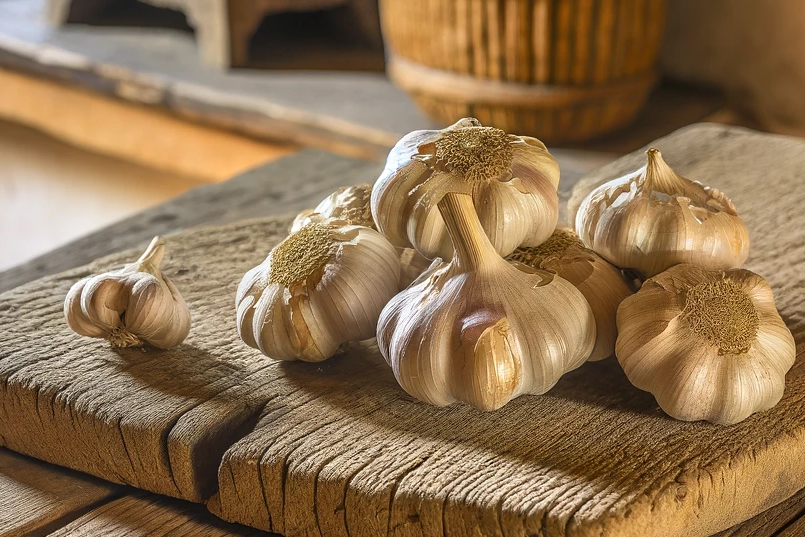Diallyl trisulfide

What is diallyl trisulphide?
Diallyl trisulphide is a chemical compound that, like diallyl disulphide, is found in certain plants such as garlic and onions. It is an organic sulphur compound and plays a role in the characteristic aromas and medicinal properties of these plants. In human nutrition and medicine, it is valued for its potential health-promoting properties, including antimicrobial and antioxidant effects.
Benefits of diallyl trisulfide
- Antimicrobial properties: Like its close relative, diallyl disulfide, diallyl trisulfide could have potential antimicrobial properties that make it an interesting subject of study in medicine.
- Antioxidant effect: The antioxidant properties could help to reduce oxidative damage in cells, which in theory could also be beneficial for dogs.
Disadvantages and potential risks
- Toxicity: Similar to other sulfur compounds found in garlic and onions, diallyl trisulfide could be toxic to dogs in higher doses, which could lead to anemia or other health problems.
- Lack of specific studies: There is a distinct lack of specific studies looking at the effects of diallyl trisulfide on dogs or other pets, making it difficult to draw definitive conclusions about its safety or effectiveness.
Precautions and recommendations
In the absence of concrete data on diallyl trisulfide, it is advisable to exercise caution and not give dogs foods or substances that contain unknown or potentially harmful ingredients.
Without specific information about diallyl trisulfide and its effect on dogs, it is difficult to make accurate recommendations. However, the general rule should always be to exercise caution with unknown or potentially harmful substances. The health and well-being of our dogs depends on us making responsible decisions about their diet and care. When in doubt, it is always safest to rely on proven and safe foods and treatments and seek the advice of professionals to ensure the best for our animal companions.
If you notice any signs of hypersensitivity or poisoning in your dog, you should see your vet immediately. We are not a substitute for a vet, but we try to be as accurate as possible. Every dog reacts differently and we recommend you get a second opinion or consult your vet if in doubt.
Stay healthy and take good care of your four-legged friend!😊
Similar to Diallyl trisulfide
Allyl methyl trisulphide belongs to the group of organic sulphur compounds and is mainly found in garlic and onions. It is responsible for some of the characteristic smells and tastes of these...
Diallyl disulphide is an organic sulphur compound that is mainly found in garlic and in smaller quantities in onions. It is responsible for the characteristic smell and taste of these vegetables....
Allyl sulphide is a volatile substance that is mainly found in garlic and in smaller quantities in onions. It is one of the main reasons for the distinctive smell and taste of these kitchen...
Dipropyl disulphide belongs to the class of organic sulphur compounds and is found in nature in numerous plants and some animal products. It is known for its distinctive smell and is often used as a...



